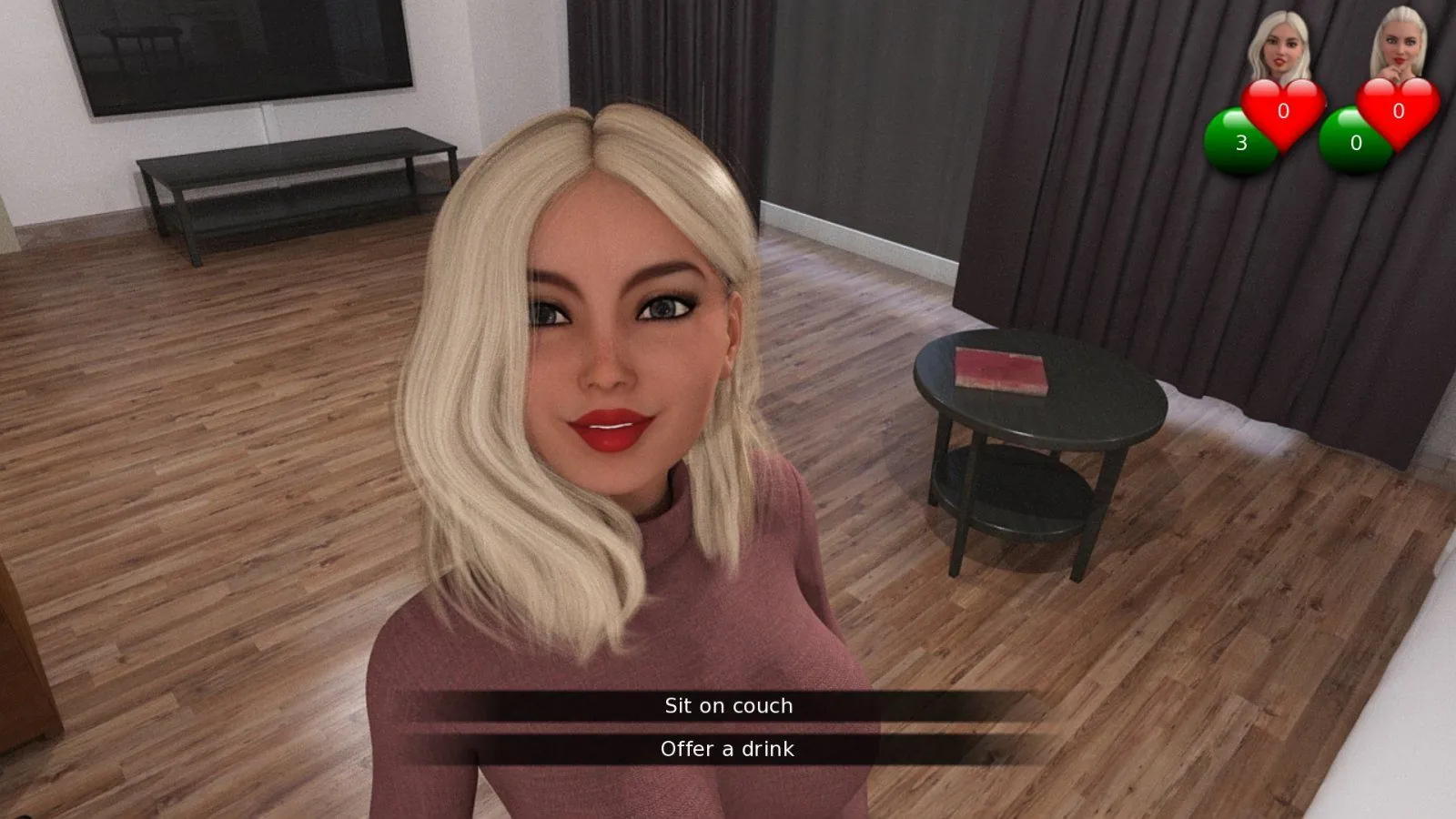
Parental Love
Play Parental Love
Parental Love review
Exploring the themes, gameplay, and reception of the Parental Love adult game
Parental Love is a provocative adult game that centers on a deeply complex and controversial family narrative. This game explores themes of addiction recovery, family reconnection, and taboo relationships within a fictional setting. In this article, we will unpack the game’s storyline, gameplay features, and the discussions it has sparked among players. Whether you are curious about its narrative or gameplay mechanics, this guide offers a comprehensive look at Parental Love.
Understanding Parental Love: Storyline and Themes
Let’s be real—when you first hear about a game called Parental Love, you probably raise an eyebrow. 😮 I know I did. But once you move past the initial assumptions, you find a story that is, at its core, about redemption and rebuilding. This chapter is all about peeling back those layers. We’re going deep on the Parental Love game storyline, the complex family web it weaves, and why it sparks so much conversation. Buckle up, because it’s quite a journey. ✨
What is the core narrative of Parental Love?
At its heart, the Parental Love game storyline is a classic tale of a fallen man seeking a second chance. 🎯 You play as a father who returns home after many years away, a period lost to addiction and poor life choices. His return isn’t a triumphant homecoming; it’s awkward, strained, and filled with the palpable tension of broken trust.
The Parental Love addiction recovery plot is the engine of this narrative. It’s not just a backstory; it’s a shadow that follows every interaction. Your character is actively trying to stay clean, find a job, and most importantly, mend the bridges he burned. The game forces you to walk that tightrope, making choices that can either solidify your recovery or send you spiraling back. It’s this constant internal and external struggle that gives the Parental Love narrative analysis so much depth. You’re not just watching a story; you’re actively participating in a man’s difficult path toward becoming a better person.
To understand the starting point, here’s a quick look at the main family members and their initial relationships with the protagonist:
| Character | Relationship to Protagonist | Initial Dynamic |
|---|---|---|
| Protagonist | Self | A man recovering from addiction, seeking redemption |
| Karen | Elder Daughter | Distant, resentful, and rightfully cautious |
| Mary | Younger Daughter | More open and curious, but still guarded |
| Lina | Sister (Aunt to the daughters) | The responsible caregiver, protective and skeptical |
This table shows the fractured foundation you have to build upon. The core Parental Love game storyline is about slowly, painstakingly, turning these “Distant” and “Guarded” labels into something warmer and more familial through your choices.
How does the game portray family dynamics?
The portrayal of Parental Love family dynamics is arguably its greatest strength. It doesn’t present a picture-perfect family; it presents a messy, complicated, and painfully real one. 🏠
The relationships are built on a history of absence and disappointment. Your daughters, Karen and Mary, aren’t blank slates waiting for a dad to love them. They have their own personalities, traumas, and lives that continued in your absence. Karen, the older sister, often embodies the anger and betrayal felt by the entire family. She challenges you, and earning her trust is the hardest battle. Mary, being younger, represents a flicker of hope and the potential for forgiveness, but it’s a fragile hope that can be easily shattered by a wrong decision.
Then there’s Lina, your sister. She stepped up when you stepped out, becoming the de facto parent. Her dynamic with you is a complex mix of familial duty, lingering affection for her brother, and deep-seated resentment for the burden you left her with. Navigating this relationship is a crucial part of the Parental Love family dynamics, as she holds the keys to the household’s stability and can be your greatest ally or your most significant obstacle.
The game excels at showing how recovery isn’t a solo mission. Your actions directly impact the emotional well-being of everyone around you. Want to see real Parental Love character development? It’s in the small moments: a reluctant conversation that ends without an argument, a kept promise, or a shared meal that doesn’t feel agonizingly awkward. The game makes you work for every inch of progress, which makes those hard-won moments of genuine connection feel incredibly rewarding. ❤️
Why is the storyline considered controversial?
Alright, let’s address the elephant in the room. The Parental Love controversial themes are what the game is most known for, and for good reason. The central point of contention is the game’s exploration of Parental Love taboo relationships.
Specifically, the narrative path allows for the possibility of romantic and physical relationships to develop between the father and his daughters. 😳 This is, without question, the most controversial aspect of the entire Parental Love game storyline. It pushes into territory that makes most players understandably uncomfortable and has been the focal point of countless debates within the community.
So, why include it? From a narrative analysis perspective, one could argue it’s the ultimate test of the game’s central theme: the corruption of parental love. It explores a darkest timeline where the father’s quest for “reconnection” becomes horribly twisted and selfish. It forces the player to confront a path that is the absolute antithesis of healthy recovery and family rebuilding. The existence of this path is a huge part of the Parental Love controversial themes.
However, it’s crucial to note that these routes are choices. The game doesn’t force you down this path; it presents it as one of many possibilities based on your decisions. This is a key distinction often missed in discussions. The Parental Love narrative analysis isn’t about endorsing these actions but about exploring the consequences of extremely poor and damaging choices within a family structure.
The reception is deeply divided. Some players argue that the mere inclusion of these options is gratuitous and harmful. Others defend it by stating that, as a work of fiction, it explores dark fantasies and consequences without promoting them. My personal take? The controversy is valid. It’s a heavy, uncomfortable subject. However, its presence creates a stark narrative contrast. By showing the darkest possible outcome, it makes the “lighter” paths of genuine familial reconciliation feel more meaningful and earned. It’s a bold, risky narrative choice that ensures the Parental Love game storyline is never forgotten, whether for good or bad reasons.
What’s your take? Does the controversial element add a layer of narrative depth, or does it cross a line? It’s a question that every player must answer for themselves, and that very debate is a testament to the game’s impactful storytelling. 💭
Parental Love is a game that pushes boundaries with its intense and controversial storyline, exploring themes of addiction, family reconnection, and taboo relationships. While it challenges conventional narratives and provokes strong reactions, it also offers a unique, if unsettling, experience within its genre. Understanding its content and themes helps players approach the game with informed perspectives. If you are interested in complex adult games that explore difficult topics, Parental Love might be worth exploring with caution.











